Patient Information
How do I decide I need surgery?
It would be best if you did not rush to decide on having back surgery or injections. Ideally after a detailed discussion with your surgeon if the information is satisfactory and makes you believe you are well informed. You must understand that there are risks and that your surgeon cannot guarantee the positive outcome of surgery or injection.
Preparing for your surgery
The hospital will usually send out a health questionnaire to fill in and return before your admission. The answers are vital as they will enable us to understand whether we need to do any special tests on you. You may also need to come in for some tests in advance, such as:
- A chest x-ray
- An ECG
- Blood tests
- A full health assessment
Please inform me if:
- You have diabetes or any allergies
- You currently take Warfarin, Aspirin, or any other blood-thinning drug
- If you have been to any other hospital in the last 6 months
- You are currently undergoing any medical or alternative treatments.
- You will not have anyone at home to help you after your hospital discharge
What do the hospitals and clinics look like ?
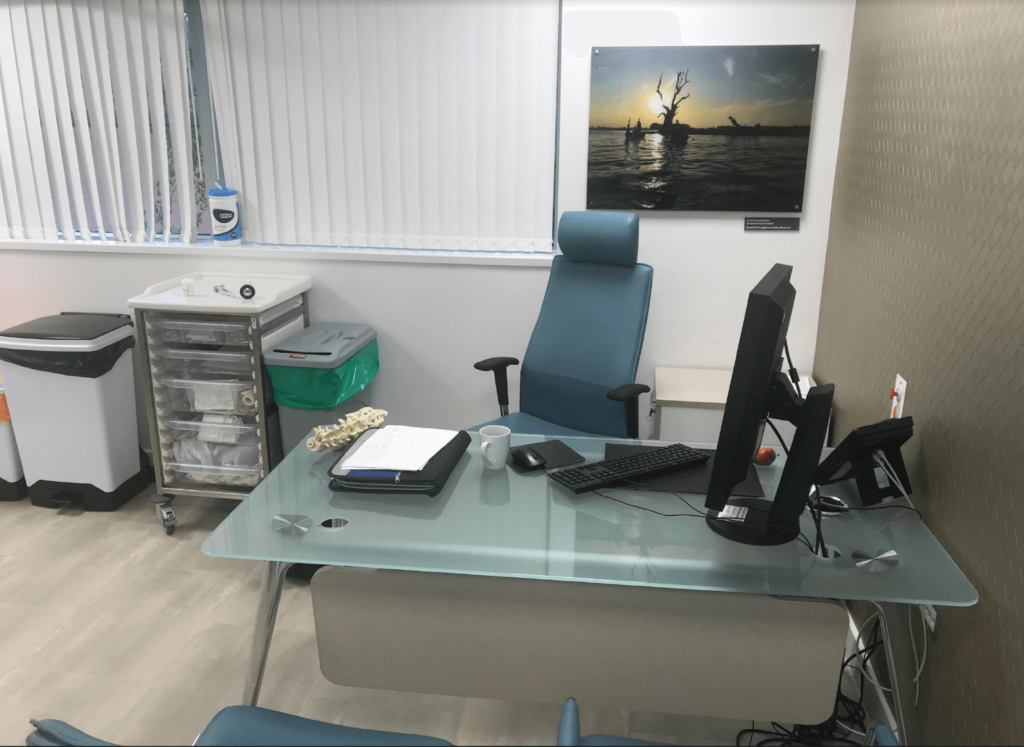
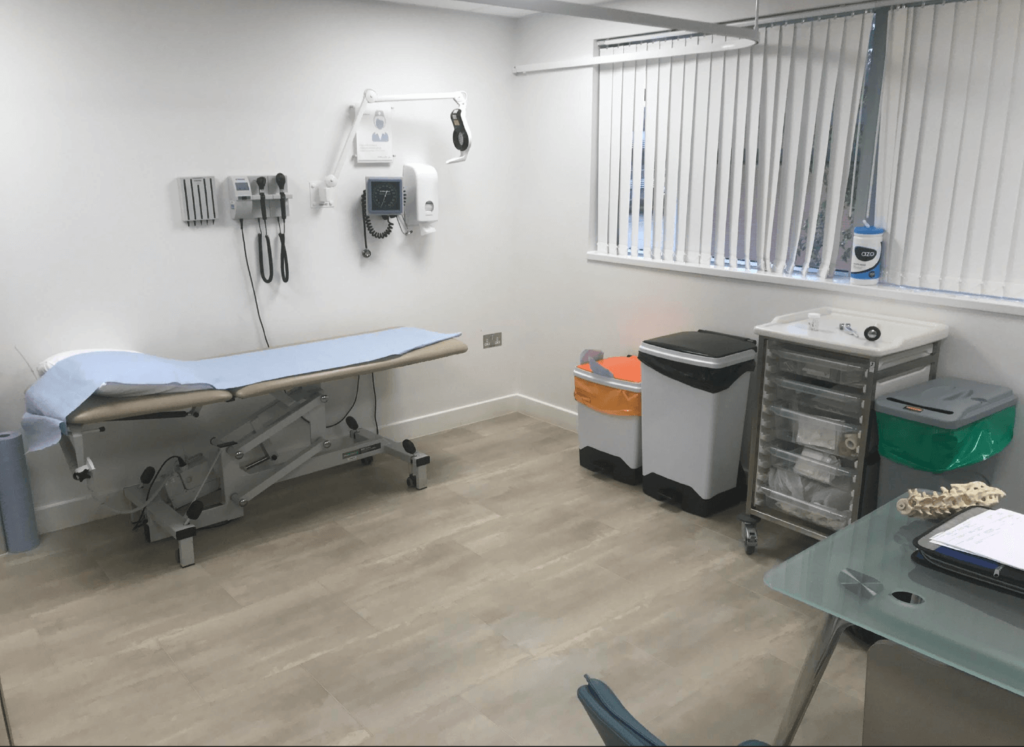


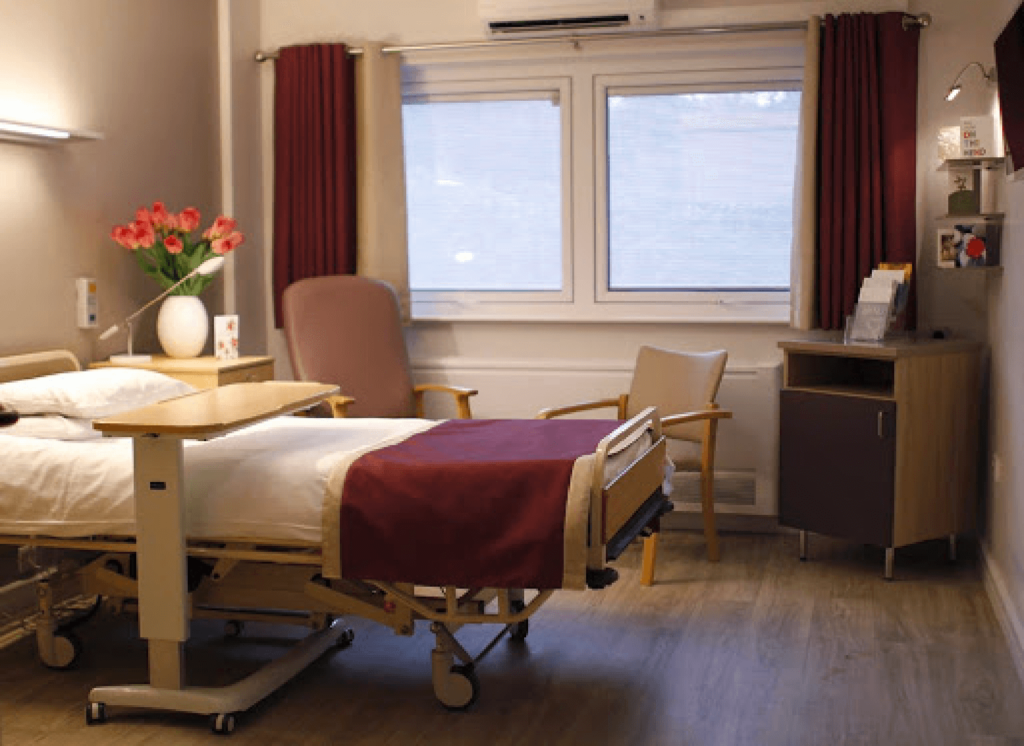


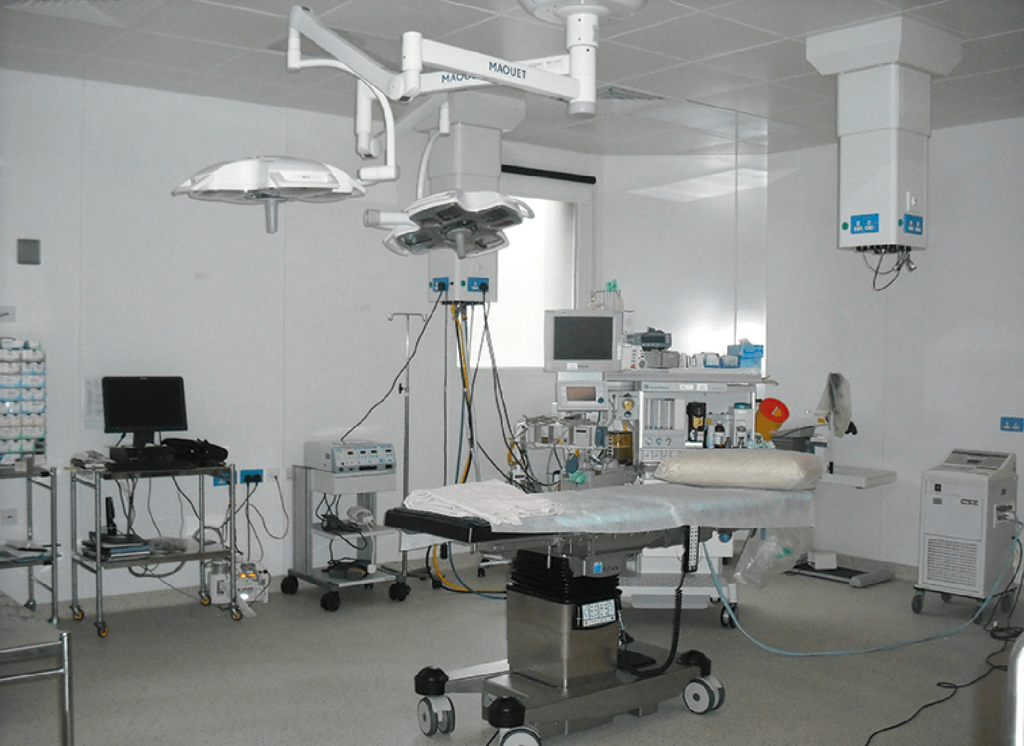


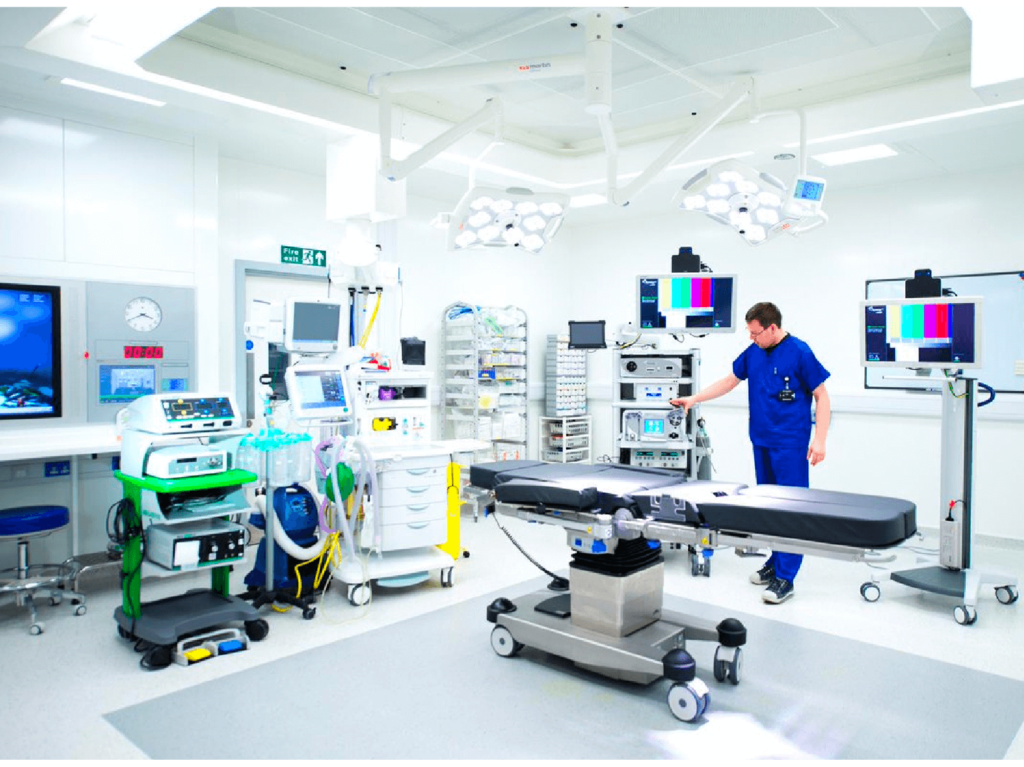


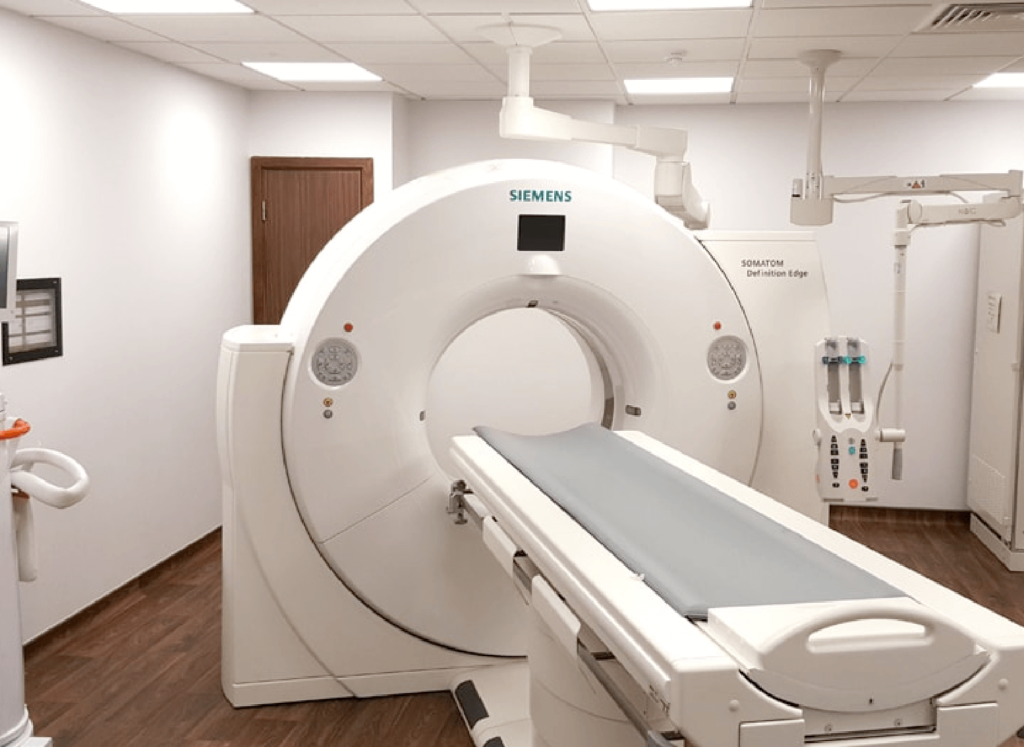


Our hospitals and clinics are equipped with the highest standards of equipment and hygiene to ensure that you are under excellent care and receive the best possible treatments. Please explore our locations are listed below, and you can arrange to visit the location most suitable to you to make an informed choice.
Upon Entering the Hospital
You would typically have received instructions about when you should stop eating and up to what time water is permitted. In most instances, you should have your regular medication with a sip of water (including pain medication) unless otherwise instructed. We advise patients to avoid blood-thinning medication, including aspirin, a few days before the planned procedure because it may interfere with the procedure.
If you must be under a general anaesthetic for your procedure, you must eat nothing for 6 hours before your operation irrespective of surgery or injection. You can have water only up until 2 hours before. You must not chew gum before the procedure as this can stimulate the stomach to produce more acid.
What Can I expect Upon Entering the Hospital?
Due to Covid restrictions, often only you may be asked to come into the hospital. You must wait in the reception area till you are taken to your room.
At the Reception Area
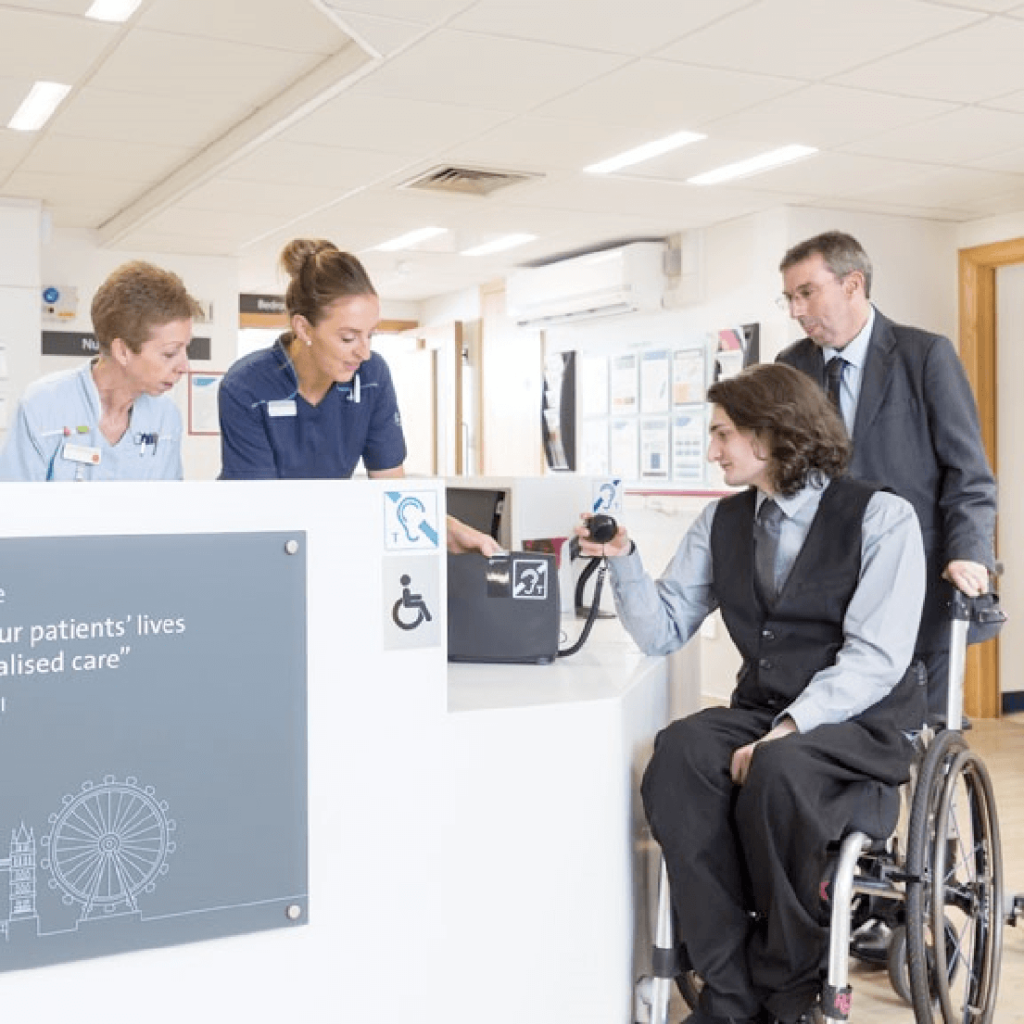


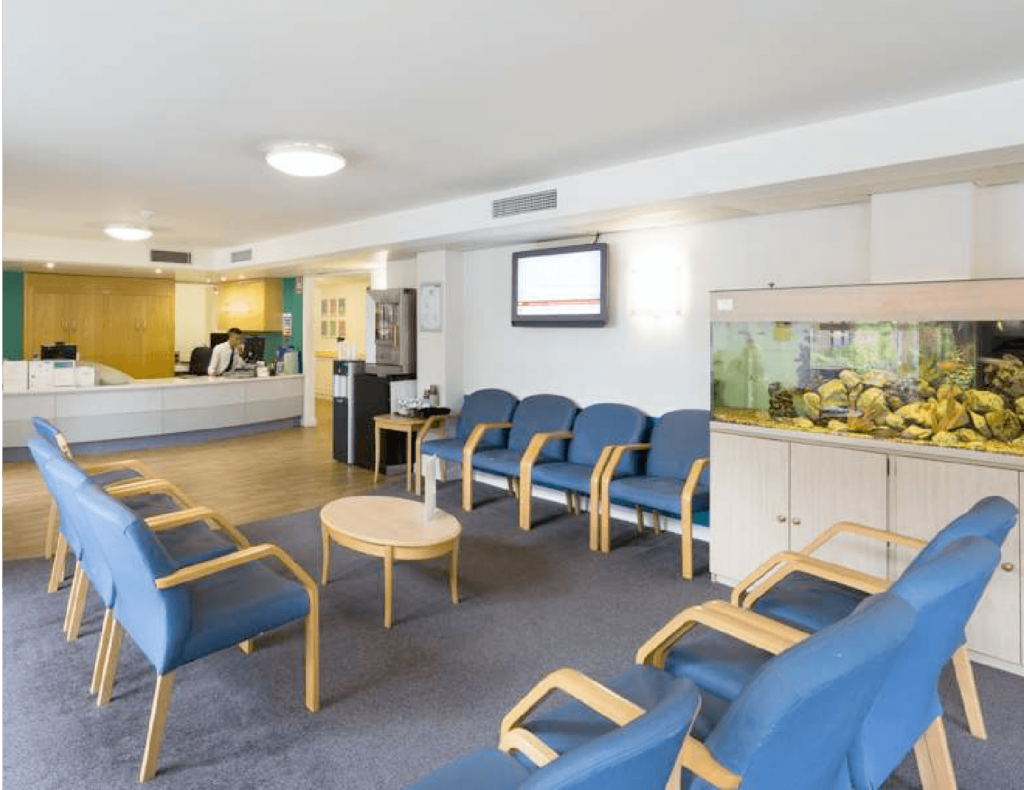


What Is The Admission/ Checking In Process ?
Nursing staff will admit patients and then escort them to their room/bed. They will measure pulse, blood pressure, temperature and instruct patients on controls in the room, calling bells etc. Patients must change into sterile hospital gowns with disposable underclothes, often with a dressing gown or bathrobe. Patients must remove all cosmetics, jewellery and watches. Patients may put all valuables into the safety deposit boxes on request, though we advise leaving valuables at home. Typically, admission time is usually several hours before procedure/surgery time. Patients get to settle in and meet with the surgeon and anaesthetist, who will reiterate the procedure, put patients at ease and often ask for signed consent to operate. There is a lot of necessary (often repetitive) documentation to prevent errors!
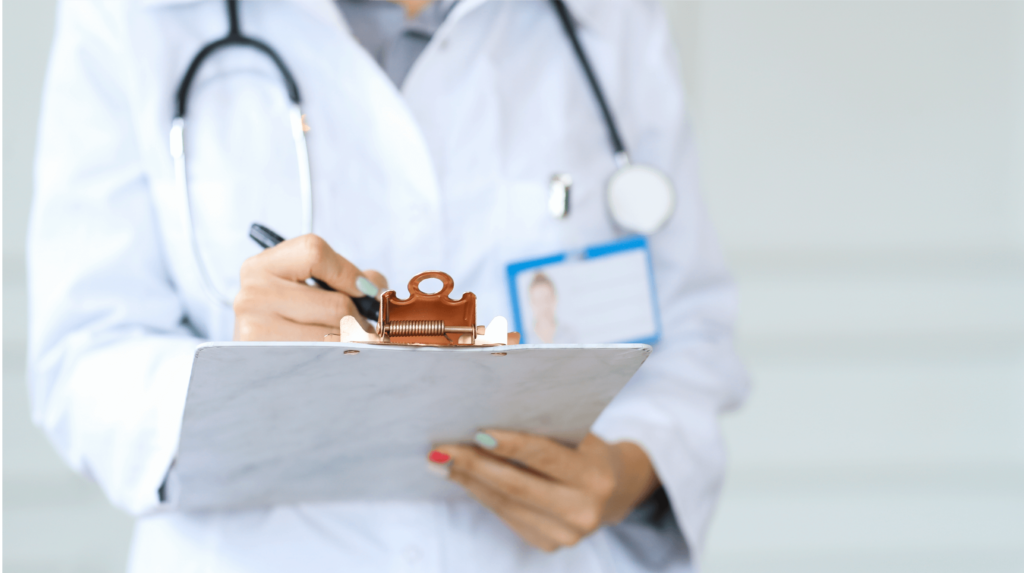


Can you explain the Pre- Procedure Process?
You will be accompanied by a porter and nurse to the operating theatre or procedure room. Usually, you will be asked to walk down but if you are in too much pain you will be taken to theatres in a wheelchair. The anaesthetist and an operating department nurse dressed in surgical scrubs will first see you in the anaesthetic room. They will follow checklists and safety checks before administering the anaesthesia (sedation) for the procedure.
What should I expect after the Operation or Procedure ?
When you wake up, you may be in the operating room or in the recovery bay, where you will remain till the staff are satisfied that you are well enough to go back to your room. Once in the room, the nursing staff will offer you some food and a drink. They will ensure that you are comfortable and sometimes I will review you and explain the procedure or operation to you. The physiotherapist may check on your mobility and teach you some exercises as required. You are often given pain killers upon discharge to use for the first few days. The hospital will discharge you once you are well enough to travel home. If you have had more major surgery you will be kept on the ward for as long as is necessary for your recovery whereas with minor day case procedures usually you are sent home two hours after the procedure.
At the Reception Area
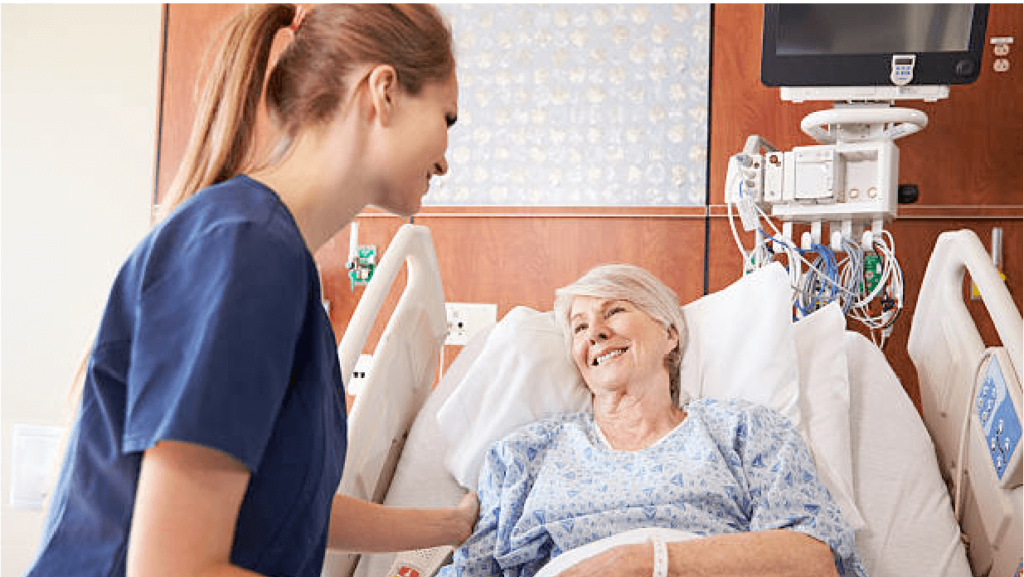


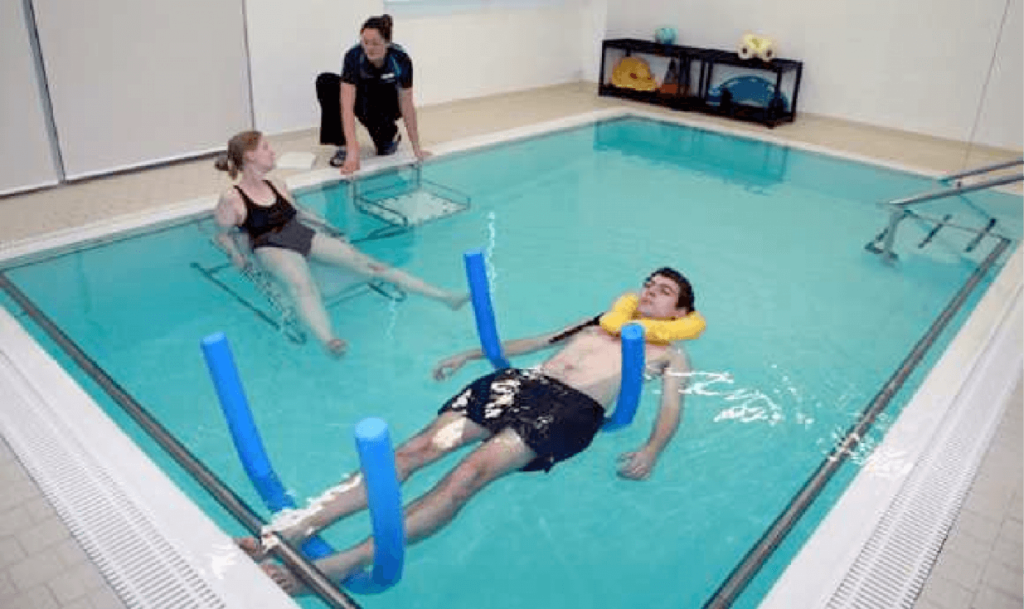


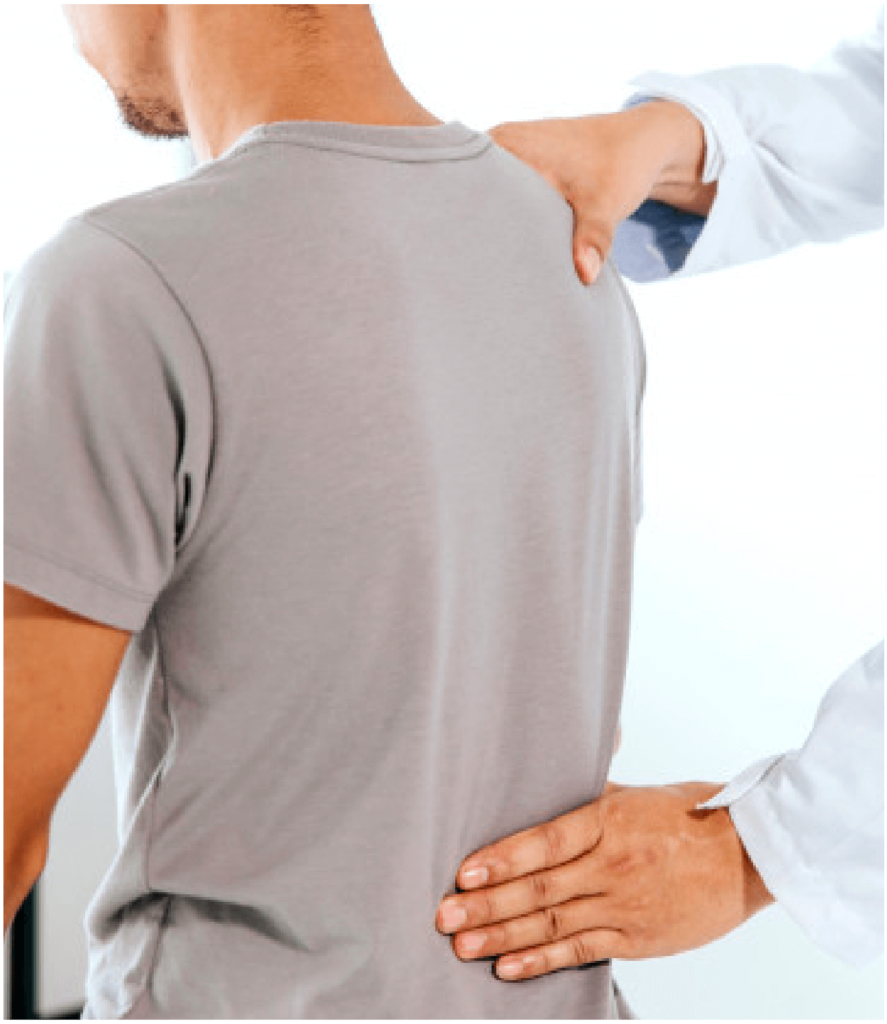


Any spinal surgery or injection will result in a certain amount of pain or discomfort after the procedure. We generally ensure that you are kept comfortable after the procedure or operation. Some people need more pain relief than others, which can be given more often or in different combinations. If you are in pain, please tell the nurse to assist you.
When will I be discharged from the hospital?
Your stay in the hospital is dependent on a few factors.
- Mr Bajekal will advise you approximately how long you can expect to stay in the hospital. However, this can only be confirmed once you have undergone the procedure or operation.
- Please make arrangements for a friend or family member to take you home. We recommend that a responsible adult accompany day surgery patients for the first 24 hours following surgery. You must not drive after sedation for 24 hours. We recommend that you stay overnight till the effects of anaesthesia wear off if there is no one available to be with you during the first 24 hours.
- You will receive medications and painkillers from the hospital to take home with you.
- You will be given advice and information by the physiotherapists on the exercises and the ‘do’s and don’ts’.
- Your GP will receive a letter (with your consent) explaining your operation and treatment.
Tips to make your homecoming more comfortable following surgery:
- Securely fasten electrical cords around the perimeter of the room.
- Rearrange furniture so you can manoeuvre with a walker or crutches.
- Remove any throw or area rugs that could cause you to slip.
- Temporarily change bedrooms to avoid using stairs, i.e., making a living room your bedroom.
Are there complications to having surgery?
All surgical procedures have risks, despite the highest standards of practice. While we make every attempt to minimise risks, complications can occur that may have permanent effects. Please ask questions if you are unsure or need more clarification as you must have enough information to weigh up the benefits and risks of surgery thoroughly.
How soon can I drive/ fly after my operation?
- We recommend that you not drive or operate heavy machinery within the first 72 hours following your surgery. You will be given more specific guidelines depending on the type of surgery you had.
- Mr Bajekal will review your progress 7-10 days after your hospital discharge and discuss these issues in more detail with you.
- It may be in your interest to inform your motor vehicle insurance company that you are resuming driving after your operation, once Mr Bajekal has cleared you to start driving again.
General risks of surgery include:
- Allergies to anaesthetic agents, antiseptic solutions, suture materials or dressings
- Pain and discomfort around the incisions
- Nausea, typically from the anaesthetic, usually settles down quickly.
- Heavy bleeding from the incisions
- Separation of wound edges
- Slow healing – most likely to occur in smokers and people with diabetes
- Wound infections
How much will it cost?
- It would help if you discussed costs before treatment rather than afterwards.
- If you are insured, we will provide the procedure codes to you and ask that you check with your health insurance company. You should check that your treatment and hospital stay and any other medical costs that you may incur will be covered.
- We will provide you with an estimate of your surgical, anaesthetic and hospital fees if you are a self-pay patient.
- If you need further treatment due to complications or choose other options, extra costs are likely to apply.
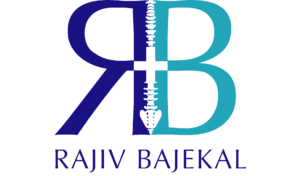


Rajiv Bajekal is a Consultant Orthopaedic Surgeon with special interest in Spinal and Back-related issues. He has developed a pragmatic approach to managing back pain and sciatica with non-surgical techniques, injections and minimally invasive techniques. Mr Bajekal is also a Board-Certified Lifestyle Medicine Practitioner and believes in providing lifestyle medicine advice to his patients for better long term health gains and better spinal health. He has been consulting since 1998. He consults both privately and on the National Health Service (NHS) and is passionate about making sure patients are in control of their healthcare.
Mr Bajekal is a member of the following institutions:
- British Medical Association (BMA)
- British Association of Spine Surgeons
- British Society of Lifestyle Medicine (BSLM)
- Plant-Based Health Professionals
- Patient Information
- Hospital Practices
- Spire Bushey Hospital
- BMI The Cavell
- BMI The King’s Oak
- Contact
- Blog
- Resources
- Glossary
Additional Links
Mr Bajekal works in conjunction with Total Orthopaedics UK. For more details please click here.
For more detailed information on plant-based nutirition please visit: www.rohinibajekal.com
For more detailed information on women’s health please visit: www.nitubajekal.com
